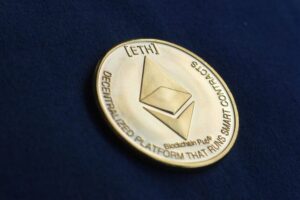Ethereum's Scalability Boost: Arbitrum

In a recent interview with Forbes, Steven Goldfeder, CEO and Co-Founder of Offchain Labs, discussed the growing trend of Ethereum Layer 2 solutions like Arbitrum and their role in boosting the scalability of the Ethereum blockchain, thereby complementing rather than competing with it.
According to Goldfeder, Ethereum stands out among Layer 1 platforms due to its inherent security, decentralization, and dynamic ecosystem. Consequently, Arbitrum and other Layer 2 solutions extend the Ethereum environment instead of rivaling it like some alternative Layer 1 platforms.
Goldfeder discussed the ‘blockchain trilemma’ – optimizing security, decentralization, and scalability. This is where Ethereum falters as it struggles with transaction speed and high fees. Arbitrum aims to enhance Ethereum’s scalability without jeopardizing its security or decentralization. The innovative Layer 2 design of Arbitrum allows it to process transactions at a higher rate, owing to its fundamental difference in security requirements compared to Layer 1 platforms.
In contrast to Layer 1 networks, which need a supermajority of nodes to function honestly, Arbitrum requires only a single honest node plus Ethereum, thereby reducing the need for widespread honesty and allowing for a greater level of transaction processing.
Explaining the mechanism of this security setup, Goldfeder mentioned that, unlike Ethereum, where all nodes are actively participating, in Arbitrum, one node posts a transaction that others can then challenge within a specific period before it gets finalized.
Comparing optimistic rollups (used by Arbitrum) and zk rollups, Goldfeder pointed out the key difference lies in how they verify the validity of transactions. Optimistic rollups use a fraud-proof mechanism, while zk rollups use a validity-proof mechanism. Goldfeder and his team at Offchain Labs chose the former due to its efficiency and cost-effectiveness.
As Ethereum’s focus shifts to scalability post-merge, Goldfeder sees this as an opportunity for Arbitrum to further its scalability efforts, including incorporating Ethereum Improvement Proposal-4844.
Regarding Arbitrum’s future developments, Goldfeder shared that Offchain Labs is working on a new challenge protocol to enhance network security. Additionally, they are developing Arbitrum Stylus to allow developers to write code in languages other than Ethereum’s native Solidity, thereby boosting network capacity and reducing gas costs for users.
Goldfeder concluded that Arbitrum had seen significant adoption in decentralized finance (DeFi) and non-fungible token (NFT) sectors, with a market share of about 65% among all Layer 2s.
Regarding the potential legal challenges from the SEC, Goldfeder refrained from commenting directly but asserted that Arbitrum prioritizes real decentralization.
Featured Image Credit: Photo / illustration by AgelessFinance via Pixabay
Source: Read Full Article
